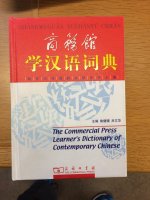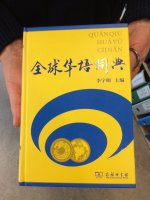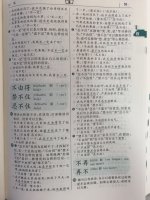We finally have a sort-of opening with Commercial Press Beijing (the long-time White Whale of our dictionary licensing efforts) and are trying to think of a specific title to approach them about licensing. Can't be anything super high profile like 《现代汉语词典》 or 《新时代汉英大词典》, since there's no way they'd go for that, but we'd like to find a lower-profile title in their catalog that would both a) fill a significant need / gap in our current offerings and b) sell well, in the hopes of building that into a stronger licensing relationship (much as 古汉语大词典 eventually led to 汉语大词典).
So, anyone have any suggestions for a low-profile CP title that would make a good + widely-desirable addition to Pleco?
So, anyone have any suggestions for a low-profile CP title that would make a good + widely-desirable addition to Pleco?



